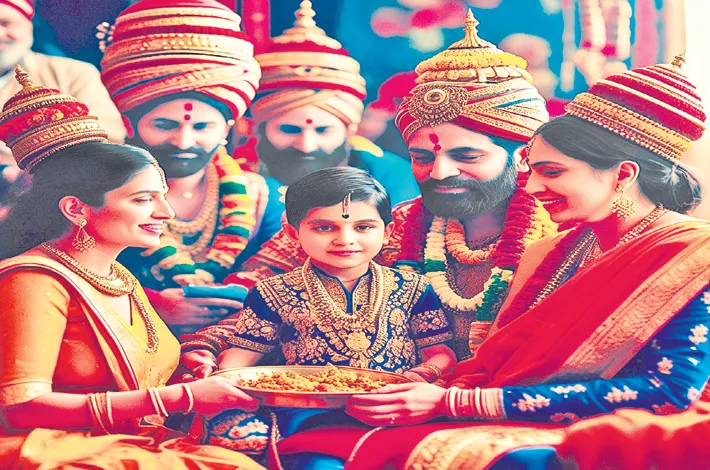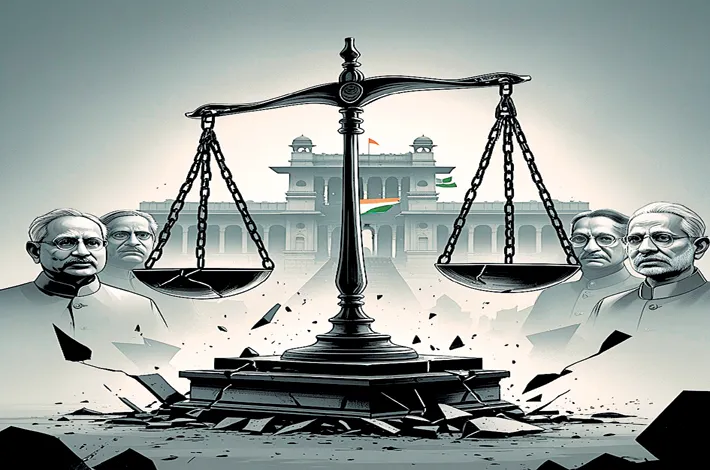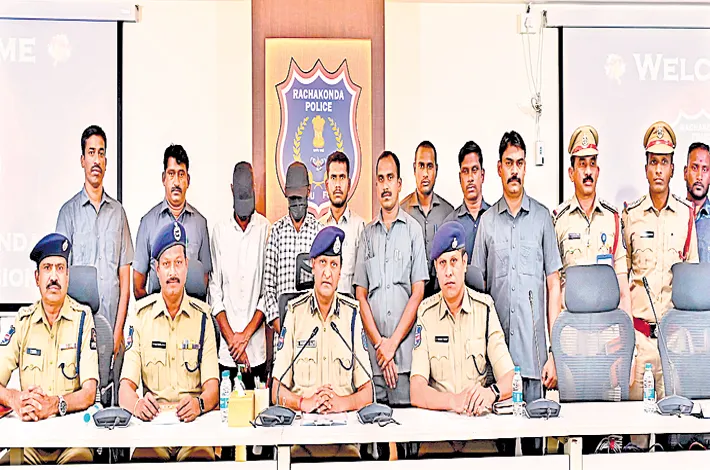Good relationships among kin in tune with Indian traditions
11-04-2025 12:00:00 AM

In the vibrant tapestry of Indian culture, relationships among kin hold a sacred and central place. Rooted in centuries-old traditions, the Indian family structure emphasizes unity, respect, and mutual support, weaving a strong bond that transcends generations.
Unlike the individualistic tendencies often seen in modern societies, Indian traditions celebrate interdependence, where familial ties are nurtured with care, reverence, and a deep sense of duty. These relationships are not merely social constructs but are imbued with spiritual significance, reflecting values derived from ancient texts like the Vedas, Upanishads, and epics such as the Ramayana and Mahabharata.
The Foundation of Kinship in Indian Culture
At the heart of Indian kinship lies the concept of dharma—the moral and ethical duty that governs relationships. This duty varies depending on one’s role within the family, be it as a parent, sibling, spouse, or grandparent. For instance, parents are seen as the first gurus, responsible for imparting values, while children are expected to honor and care for their elders, especially in their later years. The joint family system, a hallmark of Indian tradition, exemplifies this interconnectedness. Multiple generations often live under one roof, sharing responsibilities, joys, and sorrows, fostering a sense of belonging and collective strength.
Respect for elders is a cornerstone of these relationships. In Indian households, it is customary to seek blessings by touching the feet of older family members, a gesture symbolizing humility and gratitude. Elders, in turn, offer wisdom and guidance, ensuring that traditions and values are passed down. This mutual exchange creates a harmonious balance, where each member contributes to the family’s well-being.
Festivals and Rituals: Strengthening Bonds
Indian traditions provide numerous opportunities to reinforce kinship through festivals and rituals. Festivals like Diwali, Raksha Bandhan, and Karva Chauth are not just celebrations but occasions to express love and commitment among kin. Raksha Bandhan, for example, is a beautiful tradition where sisters tie a protective thread (rakhi) around their brothers’ wrists, symbolizing their bond, while brothers pledge to protect and support their sisters. Such rituals remind family members of their roles and responsibilities toward one another, deepening emotional ties.
Similarly, family gatherings during weddings, births, and other milestones serve as glue that binds kin together. These events are marked by elaborate customs, from the haldi ceremony to the saptapadi (seven steps) in weddings, where relatives play active roles, reinforcing their interconnectedness. Food, too, plays a pivotal role—preparing and sharing meals during these occasions fosters unity and love, as recipes handed down through generations become symbols of familial heritage.
Roles and Responsibilities
Indian traditions assign specific roles to kin, ensuring a structured yet flexible support system. The eldest son, for instance, often takes on the mantle of caring for aging parents, a practice rooted in the idea of pitru rin—the debt owed to one’s ancestors. Daughters-in-law, upon marriage, are welcomed as Lakshmi (the goddess of prosperity), expected to nurture the household while adapting to its customs. Siblings, cousins, and extended relatives form a wider network of support, stepping in during times of need, whether financial, emotional, or practical.
This sense of duty extends beyond the immediate family. In Indian culture, the term “family” often encompasses uncles, aunts, and cousins, who are treated with the same affection and respect as closer kin. The phrase “Vasudhaiva Kutumbakam”—the world is one family—reflects this expansive view, encouraging inclusivity and compassion even toward distant relatives.
Challenges in Modern Times
While Indian traditions have long sustained strong kinship ties, modern life poses challenges. Urbanization, nuclear families, and career-driven lifestyles have distanced some from the joint family ideal. Younger generations may prioritize independence over interdependence, and geographical mobility often separates kin across cities or countries. Yet, the essence of Indian familial values persists. Technology, for instance, has become a bridge—video calls and messaging keep families connected, while festivals still draw relatives together, even if only briefly.
Another challenge is the evolving role of women. Traditionally, women were seen as homemakers, but today, many balance careers with family duties. This shift has prompted families to adapt, with men taking on more domestic responsibilities, reflecting a blend of tradition and modernity. Despite these changes, the core Indian value of mutual care remains intact, as families find new ways to honor their heritage.
Nurturing Good Relationships
To maintain strong kinship in tune with Indian traditions, communication and empathy are key. Regular family interactions—whether through daily meals, phone calls, or reunions—keep bonds alive. Respecting each member’s individuality while upholding collective values ensures harmony.
Elders can share stories of ancestry, instilling pride in younger generations, while the youth can bring fresh perspectives, keeping traditions relevant. Forgiveness and patience are also vital. Disagreements are inevitable, but Indian culture emphasizes reconciliation over division. The concept of kshama (forgiveness) encourages kin to resolve conflicts with understanding, preserving the sanctity of relationships.
Conclusion
Good relationships among kin, as shaped by Indian traditions, are a testament to the enduring power of love, duty, and unity. They are nurtured through rituals, respect, and a shared sense of purpose, offering a support system that withstands the test of time. In a rapidly changing world, these bonds remain a source of strength, reminding us that family is not just a unit but a legacy—a living tradition that thrives on mutual care and reverence. By embracing these values, Indian families continue to flourish, embodying the timeless adage: “Together we stand, divided we fall.”








